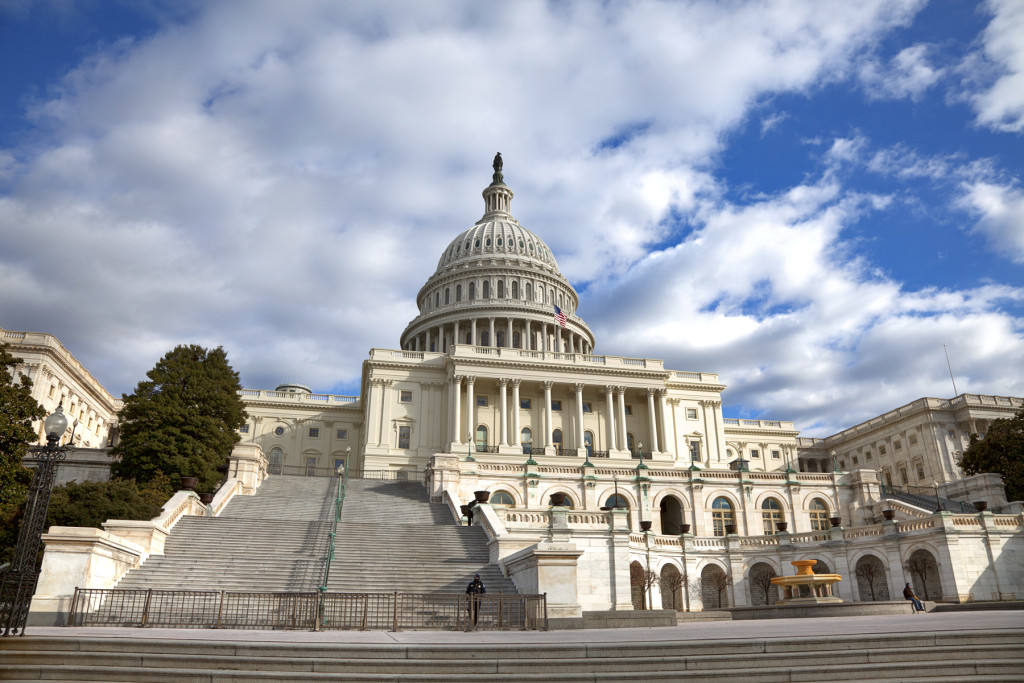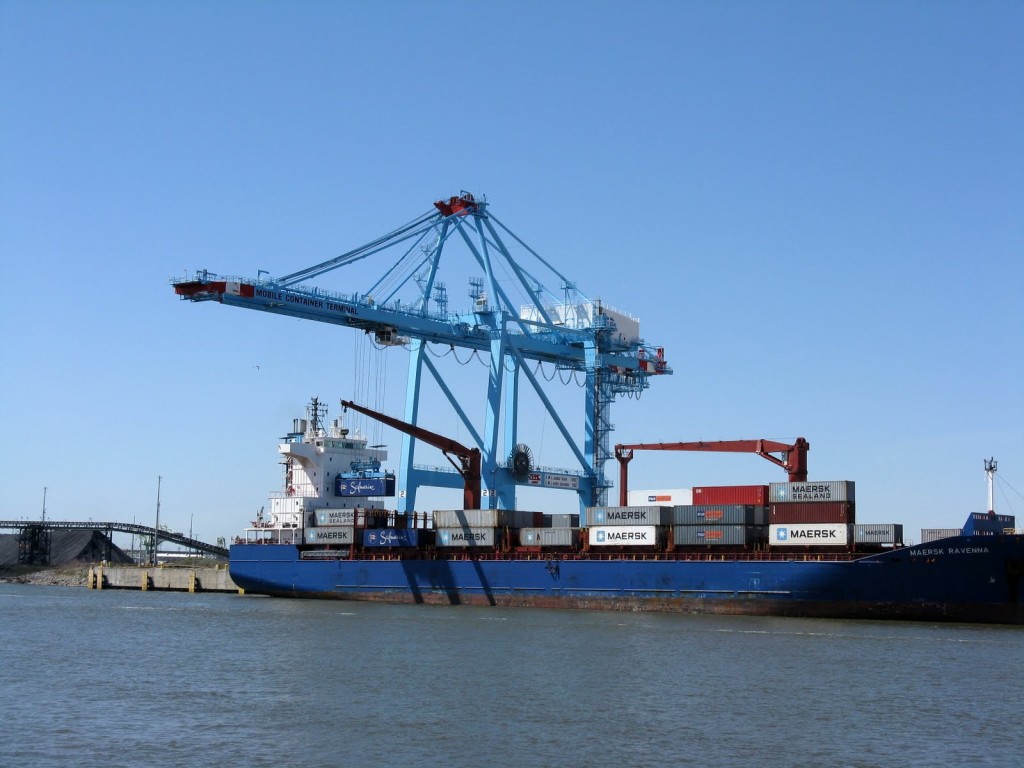House approves fast-track trade bill with little Alabama support

The House took the first of many steps toward reviving President Barack Obama‘s trade agenda Thursday, by narrowly passing controversial fast-track trade authority for the President. The 218-208 vote, with three of Alabama’s seven members voting yes, came less than a week after the trade legislation was quashed by the President’s own party. In last week’s vote, House GOP leadership paired the fast-track bill, Trade Promotion Authority (TPA), with a measure known as Trade Adjustment Assistance (TAA), which gives aid to workers displaced by trade. Both measures needed to be approved in separate votes for the entire package to move forward. Thursday’s vote stripped the fast-track bill of the the worker assistance provisions while still granting the president fast-track authority to negotiate a massive, 12-nation Trans-Pacific Partnership (TPP) trade deal. The bill now moves on to the Senate, where White House and GOP leaders are standing by, hoping to make a deal with pro-trade Democrats. Here’s a quick look at how the members of the Alabama Delegation voted and statements from their office: Representative Bradley Byrne (R – 01): Did not vote Representative Martha Roby (R – 02): Voted for TPA Representative Mike Rogers (R – 03): Voted for TPA Representative Robert Aderholt (R – 04): Voted against TPA Representative Mo Brooks (R – 05): Voted against TPA Representative Gary Palmer (R – 06): Voted against TPA Representative Terri A. Sewell (D – 07): Voted for TPA Roby: “There’s no question that trade supports jobs in Alabama, and it’s our responsibility to make sure trade agreements we enter into benefit American workers and serve our nation’s strategic global interests,” Rep. Roby said. “That’s why this Trade Promotion bill is important. It puts Congress in a much better position to ratify good multi-lateral trade agreements and to stop bad ones.” Sewell: “I continue to believe that President Obama should be given the same trade promotion authority as past Presidents. I trust that President Obama will do right by the American people, and the people of Alabama’s 7th Congressional District. President Obama has our backs, and we should have his. “President Obama has been unwavering in his support for promoting fair trade that protects American jobs and workers. I trust that President Obama will continue to protect the interests of the nation he has been elected to serve, and to uphold the values we hold dear. “I am deeply disappointed that Congress has yet to reauthorize the Trade Adjustment Assistance (TAA). TAA is a vital lifeline for displaced workers that provides the needed resources for training, employment services, and relocation allowances. Globalization and automation — irrespective of trade agreements — have created a need for greater support services for workers who lost their jobs through no fault of their own. It is my hope that my colleagues will reconsider the TAA vote because I strongly believe that TPA and TAA go hand in hand.”
Bradley Byrne: What is Trade Promotion Authority and why does it matter?

The world’s economy is now more interconnected than ever before, with 96% of customers located outside of the United States. If we are going to stay competitive on the world stage and grow our economy, then we must look for new ways to engage in trade. That’s why the United States is currently in negotiations with a number of Pacific Rim and South American countries located on the Pacific regarding a new free trade agreement. Similar talks are ongoing with our allies in Europe. To simplify the process, Congress is using a tool called Trade Promotion Authority, or TPA. This process has been used for decades. TPA is not a trade deal itself, but instead, a way for Congress to set the negotiating guidelines which the President must adhere to in any final agreement. To date, no trade deal has been completed without a TPA procedure in place. I have heard from constituents and groups right here in Alabama and all across the country who believe Congress should pass TPA. Groups like the Mobile Area Chamber of Commerce, the South Baldwin Chamber of Commerce, the Alabama State Port Authority, the Alabama Farmers Federation, the steel industry, and Manufacture Alabama have all asked me to support TPA. Liberal labor unions claim that free trade doesn’t benefit American workers, but that is simply not true. Over 558,384 jobs in Alabama alone are directly supported by trade. Nationwide more than one in five jobs – over 38 million – are related to trade. Specific to Southwest Alabama, the Port of Mobile is among the top United States ports serving manufacturing, mining, and agribusiness exports. I’ve also heard from our nation’s military and foreign policy leaders who believe passing TPA is important for our national security. If the United States doesn’t engage in trade with our allies in the Pacific and Europe, nations like China and Russia will fill the void and expand their influence in the region. We simply cannot allow that to happen. That’s why 17 former Secretaries of Defense and senior military officials, as well as former Secretary of State Condoleezza Rice, have called on Congress to move forward with new free trade agreements, which are a key foreign policy tool. Most importantly, many conservative organizations and leaders like Ted Cruz, Paul Ryan, and Macro Rubio, have urged passage of TPA in order to restrict President Barack Obama’s authority and hold the President accountable. In fact, Senator Cruz wrote that “trade promotion authority will hold the administration accountable both to Congress and to the American people.” Every President already has the Constitutional authority to negotiate trade deals with foreign nations, but TPA would allow Congress to set guidelines, restrictions, and requirements for the negotiations. TPA puts Congress, not President Obama, in the driver’s seat when it comes to trade agreements. TPA also makes some significant transparency requirements that will force the President to keep the American people informed about the negotiations. Under TPA, any potential trade agreement will have to be made publicly available for 60 days before Congress can vote on it. Most importantly, TPA ensures that Congress has the final say in approving any trade agreements. If a deal doesn’t meet the high standard that is required, then Congress would simply reject it. I came to Washington to focus on solutions that grow the economy, advance a strong national defense, and fight back against an out of control executive. Passing TPA fulfills each of those goals, and that’s why it earned my support. If you still have questions about TPA or any other issue related to trade, I invite you to visit my website at Byrne.House.Gov where I have posted some more information about this important legislation. Bradley Byrne is a member of the U.S. Congress representing Alabama’s 1st Congressional District.
John McMillan: Global trade vital to Alabama ag, industry

As Agriculture & Industries Commissioner, I work closely with the Alabama farming and business communities to grow the economy and create prosperity for our state. This provides firsthand knowledge that one of the most important factors in generating this kind of growth and prosperity is international trade. That’s why Congress needs to take a bold step and pass Trade Promotion Authority (TPA). TPA has been in the national news quite a bit lately, and garnered a fair share of controversy. But much of what one reads or hears about TPA is misleading or misinformed. Heated rhetoric aside, TPA is nothing more than an agreement between Congress and a U.S. president as to how they will work together to negotiate, consider, and vote on international trade agreements. TPA allows both branches of the federal government to participate in trade development and set up an expedited process for trade deals. TPA does not take power away from Congress and give it to President Barack Obama. Presidents can negotiate trade deals any time they want — with or without TPA, they still need Congressional approval of any trade deal they negotiate. In fact, TPA provides for more oversight of and transparency from the administration, and gives Congress a voice in the entirety of the process, instead of just a vote at the end. TPA also makes sure the public has its say by requiring any agreement to be published for public review 60 days before it can be finalized. Why is TPA necessary? Because Congress is Congress, and no matter how beneficial a trade agreement would be for the nation, there will always be one or two legislators who have a political axe to grind who will hold up the process. TPA makes sure the narrow interests of the very few don’t trump the broad interests of the very many. In doing so, it lets our potential trade partners know they can rely on the terms of the agreements they negotiate with a president and that they will not be changed or unduly delayed by a highly politicized Congress. That’s why it is so important to get TPA back on the books for our state. Alabama is a major exporter, and our farms and businesses count on new global markets to grow their businesses and create jobs. Without TPA, we cannot finalize the kinds of deals that open up these markets. TPA is not some abstract federal legislative issue — it has a direct impact on Alabama’s economy and the 90,000 jobs supported by Alabama exports. Recently, U.S. Trade Representative Michael Froman described Alabama as an “exporting powerhouse,” and said that Alabama “exports are supporting well-paying jobs.” These are not understatements: In 2014, Alabama exported $19.5 billion in goods. In 2013, almost 4,000 companies exported from the state, more than 80 percent of which were small- and medium-sized companies. It’s no surprise, then, that a recent poll found that an overwhelming majority of Alabamians support free trade. Last week the U.S. Senate voted in favor of TPA with a strong, bipartisan majority. I strongly urge Reps. Robert Aderholt, Gary Palmer and Terri Sewell — as well as the rest of Alabama’s congressional delegation — to support TPA as it moves through the U.S. House of Representatives. John McMillan is the Commissioner of Agriculture & Industries for the state of Alabama. You may contact him at john.mcmillan@agi.alabama.gov.


